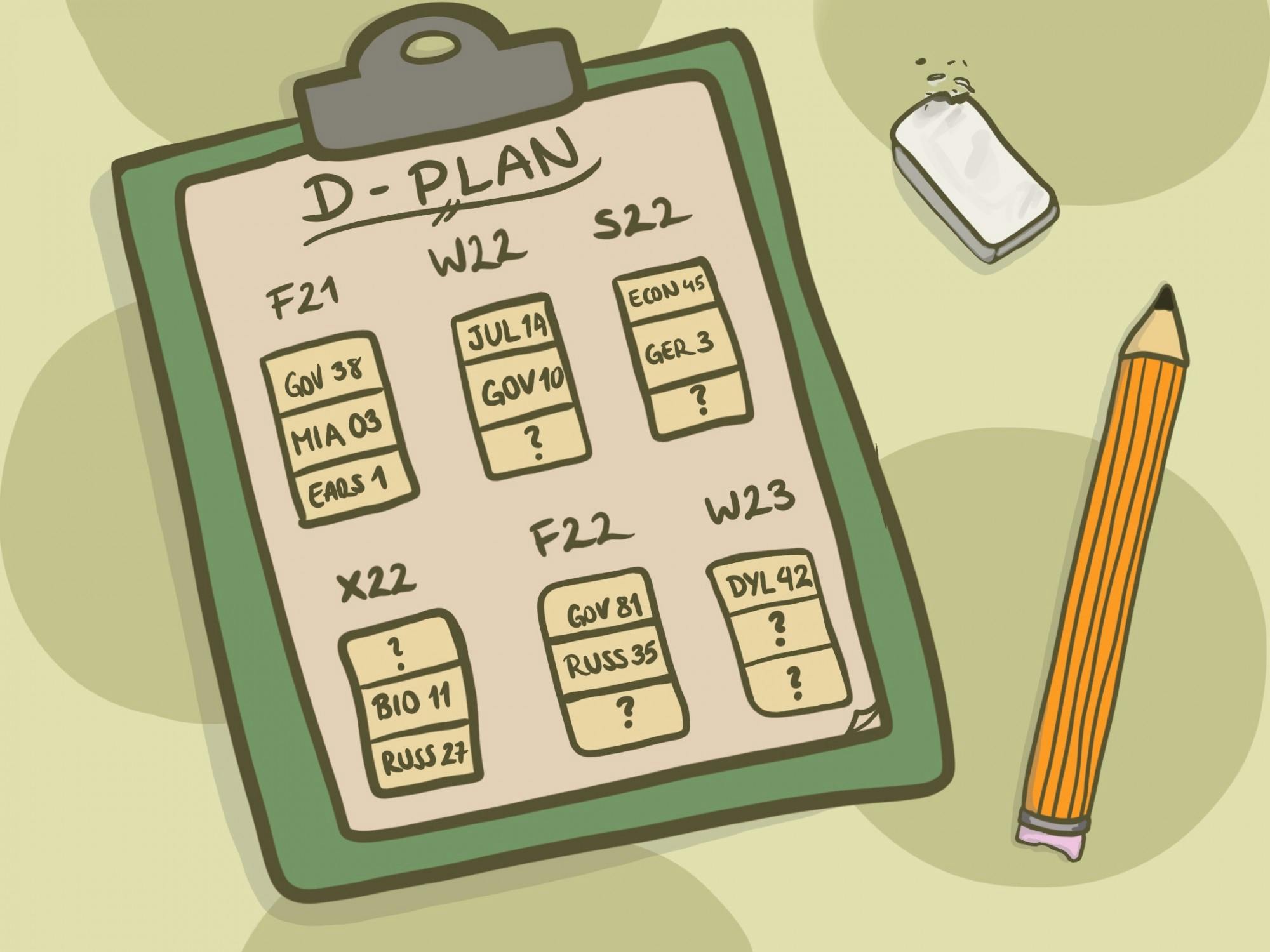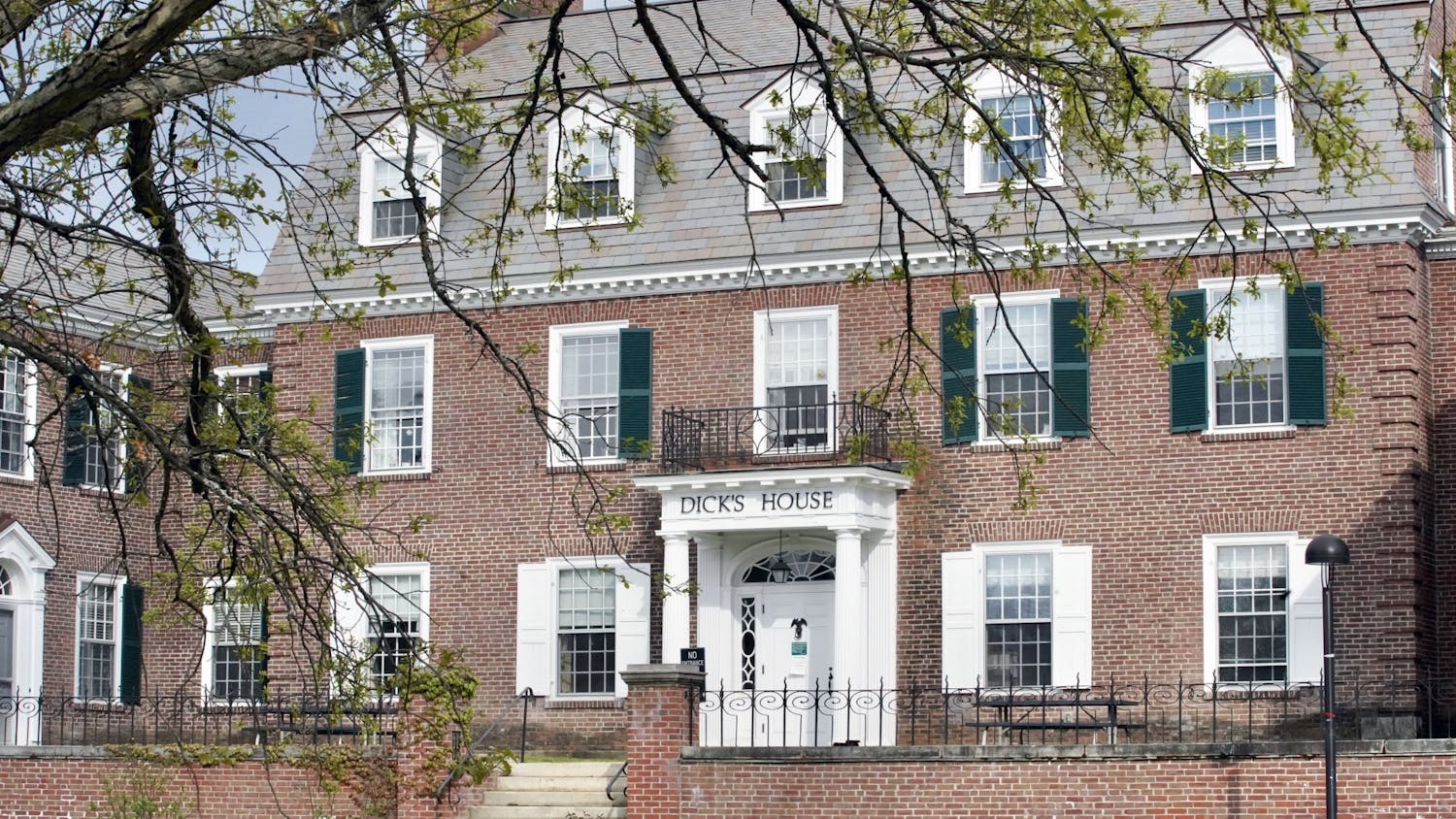This article is featured in the 2021 Spring special issue.
With restrictions on campus life, a de-densified campus and primarily online classes, the past year has been far from normal. While many students stuck to their initial academic plans, the pandemic prompted others to take untraditional gap years and personal withdrawals. Even as we begin to leave the pandemic behind, students still feel the lingering impacts of the socially distanced year as they plan for their future terms.
Jesse VanNewkirk ’23, like many Dartmouth students, found it hard to focus and engage with his classes following the College’s transition to remote learning. As someone with dyslexia, dysgraphia and ADHD, VanNewkirk said that he struggled to learn effectively in the new online format, which lacked some of his favorite aspects of the college classroom including one-on-one time with professors and collaboration during group work.
“When we got sent home in the spring last year — that kind of trial process of doing online school — I was like, ‘Wait, this is just garbage. I get very, very little out of this,’” VanNewkirk said.
While many students stuck with the new remote format and took online classes throughout the year, the College’s response to COVID-19 prompted VanNewkirk to shake up his academic plans. After spending his freshman summer working as an associate product manager for a security systems firm in Virginia, VanNewkirk realized that the pandemic wasn’t coming to an end anytime soon, and he elected to take a gap year to avoid the burdens of online classes.
“I was like ‘Realistically, the pandemic is going to continue,’” VanNewkirk said. “I said ‘You know what? Let’s just take a gap year.’”
For the past three quarters, VanNewkirk has been working part-time at the same security systems firm while also pursuing other passions, from visiting old friends across the country to taking a bladesmithing course at Texarkana Community College in Texas. This term, he is continuing to work part time while living in Bridgewater, Vermont with friends.
VanNewkirk was not the only student who decided that enrolling during the pandemic was not worthwhile. Because Dartmouth would not allow most sophomores to live on campus this fall, Alexander Fell ’23 elected to extend his summer internship with a venture capital firm. After taking two leave terms to pursue his internship, Fell realized he “was loving it and learning so much, so [he] decided after winter term to take a personal withdrawal.”
Withdrawing from the College allows students deemed “in good standing” by the Office of Student Affairs an avenue totake more than four consecutive leave terms, the maximum number normally allowed before a student must return to campus. For Fell, his decision affords him the extra flexibility to return to campus whenever he sees fit.
“This experience is so, so unique, and I want to spend as much quality time as possible immersing myself in it,” Fell said.
Some students changed their campus residency plans as a result of COVID-19 protocols, even if they weren’t able to officially take on off-term without withdrawing. Sophia Emmoth ’24 was removed from campus in the fall and found that the remote teaching format of her classes made her feel less connected with Dartmouth. Even in the spring, when ’24s who had previously been removed from campus were welcomed back, Emmoth opted to take classes from home.
“I felt more comfortable being at home and I didn’t want to be restricted by the rules that Dartmouth put in place for COVID,” Emmoth said. “I felt like it would be better for me to come back next year when everything is back to normal than struggle with trying to live on campus with Dartmouth’s restrictions.”
The promise of a more normal college experience has made many other students more excited for the upcoming academic year. Emmoth expressed that she “wants to be on campus as much as possible after being away from campus so much” but she first plans on attending the College-sponsored exchange program with the American University of Kuwait this fall before finally arriving on campus for her first full term in Hanover during the winter.
She said that the possibility of studying abroad in a Arabic-speaking country, a language that she is interested in learning, was an opportunity that she could not pass up, and she thinks it will be an improvement over this past year’s virtual learning.
“I was interested in studying Arabic before, and it seems like that would be a better learning experience than studying at home from my computer and more interesting and more fun.”
VanNewkirk is also eager to return because he “[misses] that intellectual curiosity that’s associated with school, so [he’s] looking forward to getting back to it.” After a year away from campus, VanNewkirk plans to be back in residence for the summer. He is currently registered for one on-campus class, one class with on-campus components and one remote class, but the fact that the majority of classes were still offered entirely online initially caused VanNewkirk to question his decision to return.
“I wanted to be in Hanover with friends in the summer, but the issue with that is it kind of is a continuation of online school, which was the thing that I was really turned off by,” VanNewkirk said. If Newkirk had not gotten the in-person classes he registered for, he might have considered further postponing his return to campus.Not every student is in such a rush to reassimilate into campus life. For now, Fell plans to continue working at the firm at least through the summer, tentatively anticipating a return to campus sometime in the next year.
“Right now in the business, it’s a pretty exciting time, so I want to be here for the summer at least, and then I’ll reevaluate every term to see where I’m at,” Fell said.




